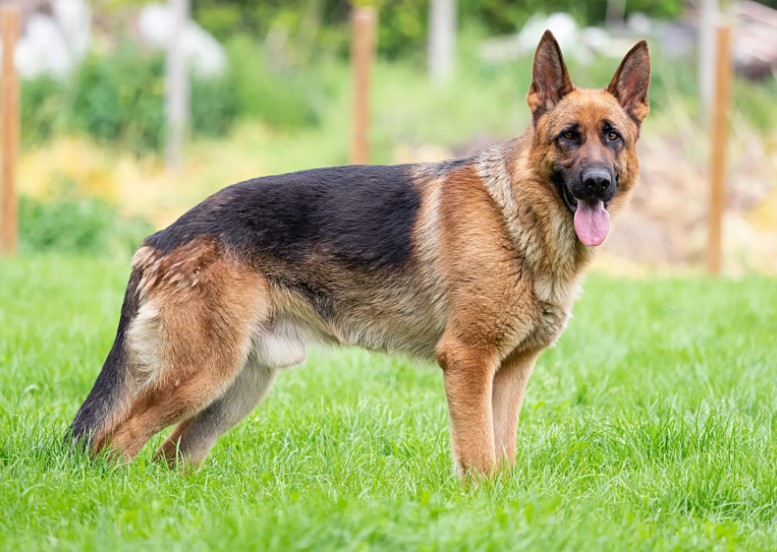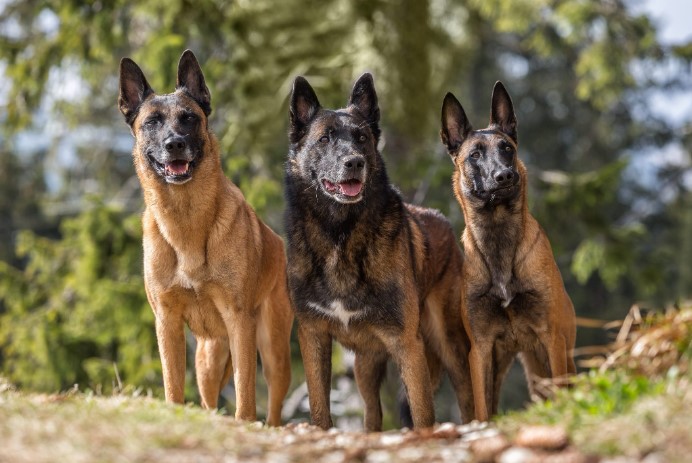German Shepherd: A Comprehensive Guide

German Shepherds are one of the most popular dog breeds in the world. Known for their intelligence, loyalty, and protective nature, these dogs make excellent companions for the right owners. In this article, we will delve into the history, characteristics, care, and training of German Shepherds.
History of German Shepherds
German Shepherds originated in Germany in the late 19th century. Captain Max von Stephanitz, a German cavalry officer, is credited with developing the breed. He wanted to create a dog that was intelligent, obedient, and versatile. The result was the German Shepherd.
During World War I, German Shepherds were used as military dogs for the German army. Their intelligence and loyalty made them ideal for tasks such as messenger dogs, guard dogs, and sentries. After the war, German Shepherds gained popularity as police dogs and guide dogs for the blind.
Characteristics of German Shepherds
Physical Appearance
German Shepherds are a large breed of dog. They typically weigh between 50 and 90 pounds and stand between 22 and 26 inches tall at the shoulder. They have a distinctive, muscular build and a long, pointed muzzle.
German Shepherds have a thick, double coat that can be either short or long. The most common colors are black and tan, but they can also be solid black, sable, or white.
Personality
German Shepherds are known for their intelligence and loyalty. They are a working breed, which means they need a job to do. They are happiest when they have a purpose, whether it’s serving as a police dog or competing in obedience trials.
German Shepherds are also protective of their families. They have a strong prey drive and can be aggressive towards other animals if not properly socialized. However, with the right training and socialization, they can be excellent family pets.
Health Concerns for German Shepherds
Like all breeds, German Shepherds are prone to certain health conditions. Some of the most common health concerns for German Shepherds include:
- Hip dysplasia
- Elbow dysplasia
- Bloat
- Degenerative myelopathy
- Pancreatic insufficiency
It’s important to work with a reputable breeder and a veterinarian to ensure your German Shepherd is healthy and well-cared for.
Nutrition for German Shepherds
German Shepherds have high energy levels and require a diet that is high in protein and fat. It’s important to feed them a high-quality dog food that is appropriate for their age, size, and activity level. German Shepherds can also benefit from supplements such as glucosamine and chondroitin to support joint health.
Exercise and Grooming for German Shepherds
German Shepherds require regular exercise to keep them healthy and happy. They need daily walks and plenty of opportunities to run and play. They also enjoy activities such as hiking, swimming, and agility training.
German Shepherds have a thick coat that requires regular grooming. They should be brushed at least once a week to prevent matting and shedding. They also need regular baths and nail trims.
Training and Socialization of German Shepherds
German Shepherds are highly intelligent and eager to please, which makes them relatively easy to train. However, they can be stubborn at times and may require firm but fair training methods.
It’s important to start training and socializing your German Shepherd from a young age. This will help prevent behavioral problems later on. Positive reinforcement methods, such as treats and praise, work well with this breed.
German Shepherds excel in activities such as obedience training, agility, and tracking. They also make great therapy dogs and service dogs for people with disabilities.
Common Misconceptions about German Shepherds
There are several misconceptions about German Shepherds that can make people hesitant to adopt them. Here are a few of the most common myths:
- German Shepherds are aggressive: While they can be protective of their families, German Shepherds are not naturally aggressive. Proper socialization and training can help prevent aggressive behavior.
- German Shepherds are high maintenance: While they do require regular grooming and exercise, German Shepherds are not as high maintenance as some other breeds.
- German Shepherds are not good with children: German Shepherds can make excellent family pets if properly socialized and trained. They are loyal and protective of their families.
How to Choose a German Shepherd
If you’re considering adding a German Shepherd to your family, it’s important to do your research and find a reputable breeder. Look for a breeder who is knowledgeable about the breed and who prioritizes the health and well-being of their dogs.
You should also consider whether a German Shepherd is the right breed for your lifestyle. They require regular exercise and training, so they may not be a good fit for someone who works long hours or is not able to provide them with the attention they need.
Conclusion
German Shepherds are a popular breed for a reason. They are intelligent, loyal, and versatile. With proper care, training, and socialization, they can make excellent family pets, as well as service dogs and working dogs. If you’re considering adding a German Shepherd to your family, be sure to do your research and find a reputable breeder.






